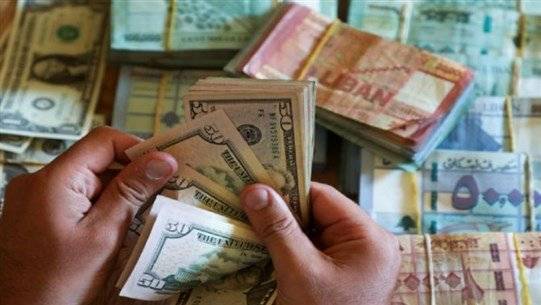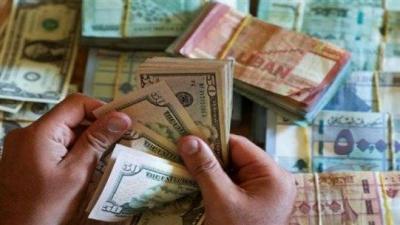The widespread focus on the government's plans for reviving the financial sector has overshadowed the equally significant, if not more critical, items included in the economic policy memorandum, which forms the pillars of the recovery plan that will be negotiated with the International Monetary Fund (IMF) under the preliminary agreement signed by both parties. As the course of forthcoming developments—and particularly the status of the government amidst the prolonged 'caretaker' period versus the agreement to form a new government—remains uncertain, it is likely that complaints and objections expressed by ministers representing influential political factions will intensify among private sector bodies and professional unions. These will encompass more approaches and suggestions contained in the entire plan, which will not be limited to the banking sector that has vocally opposed placing the heaviest burdens on depositors and banks due to an estimated financial gap of around $37 billion.
An economic official noted in a call with "Asharq Al-Awsat" that the coded message released by economic entities representing the private sector, stating that "reviving the country requires implementing a reliable and fair economic and financial recovery plan, but this depends on having capable governance and genuine national political will," implies coordinated subsequent movements likely to reach the IMF's corridors to highlight the government's failure to secure and rally a broader political, economic, and syndical coverage for the promised rescue plan.
It is observed that emergency indicators following the completion of the parliamentary elections—such as renewed storms of criticism and inflation at an unprecedented record level—alongside the beginning of soaring costs for services and government fees, necessitate a reordering of priorities and the mobilization of efforts to prevent a violent collision with the deeper bottom of ongoing collapses across all levels. This demands a swift exit from the current state of collision over the plan by reopening discussions about its directions with all relevant parties, especially with previous and incoming parliamentary blocs that have been overlooked concerning their positions on the proposed legislative laws submitted within specified timelines, as if their approval were pre-assured.
The official points to a blatant contradiction in the government's directions included in the plan. After placing the brunt of the losses on depositors and banks, which undermines any subsequent savings or investment initiatives, it states in its economic program that the government "will work to improve the business environment, ensure equal opportunities to stimulate investment. The focus will be on enhancing productivity across all economic sectors, emphasizing the knowledge economy as a vital driver of growth. The government will create the appropriate regulatory climate, along with formulating policies to support the prosperity of economic activity. In this regard, enhancing digital financial services, reinforcing the intellectual property framework, providing low-cost and high-speed Internet services, and increasing electricity supply will all contribute to building an innovative knowledge economy."
The government acknowledges that restoring financial solvency is an urgent priority to boost trust in the state and provide essential public services. After many years of significant deficits, weak revenues, wasteful spending, and unsustainable public debt reaching alarming levels—part of which is now categorized as overdue payments due to the government's inability to pay—the aftermath of the crisis has seen financial revenues collapse, leading to a sharp contraction in spending and a public administration that barely performs its simplest tasks. This will require considerable efforts over many years to restore debt sustainability and create fiscal space for urgently needed priority spending in areas such as social protection, health, education, and infrastructure.
However, acknowledging the causes of the public finance crisis that has suffocated the economy and society is not coupled with objective and judicial frameworks for appropriately addressing the issues; rather, it continues with policies of denial and evasion of responsibilities and obligations. The government states: "In the short term, our efforts regarding public finances focus on addressing the emergency situation arising from the multifaceted crisis, as well as containing the areas of dysfunction," noting that no serious efforts have emerged in this direction.
In this regard, the memorandum mentions legislation that has not yet been enacted into a law, suggesting that its formulation assumed approvals that have not actually occurred. It states, "The recently adopted budget for 2022 allows for the fiscal deficit to rise to 4 percent of GDP to support the most crucial social spending and alleviate the burden on the most vulnerable groups and to begin addressing the social impact of the crisis on the population. It will also contribute to partial recovery in human resources and other expenses that have significantly eroded over the past two years due to rising inflation."
However, it is particularly noteworthy that the government has responded with exceptional decisions to improve revenues by allocating social grants to resume public services that were on the verge of collapse, even though this measure has not gone far in preventing the severe decline in public sector salaries.
Conversely, the financial official highlights the reality of the government's contribution to exacerbating inflation that traps 83 percent of residents, the majority being poor, as it explicitly states in the memorandum: "Our efforts related to revenues will focus on rebuilding the capacity to collect taxes and customs duties by enhancing administration and improving tax compliance. Additionally, the customs tariff on imports will be evaluated at the new unified exchange rate, and several additional fees will be introduced. The targeted deficit in the state's budget will be covered from available external financing, and we will avoid domestic financing due to current vulnerabilities and the fragility of the banking sector."
With an advance acknowledgment of Lebanon's incapacity to access global money markets, the government relies—without any secured guarantees—on the idea that "most of what we obtain in funding will come from official international sources." This aims to reduce public debt to less than 100 percent of GDP by 2026 and to 76 percent by 2032, achieved through a series of measures including tightening public finances, establishing growth-enhancing policies, reforming public finances, and restructuring debt. The overall financing needs will be reduced to an average of 9 percent of GDP during 2022-2032, not exceeding 10 percent of GDP in any given year.
Without contemplating or defining how to manage funding sources in the medium and long term, according to the financial official's description, the government's financial strategy aims to place debt on a downward trajectory through gradual financial adjustments accompanied by permanent reforms and a debt restructuring strategy. The text states: "We have agreed upon and endorsed a medium-term strategy for public finances and debt sustainability that will facilitate increased spending in the social and infrastructure sectors while ensuring financial sustainability."
In realistic terms, the currently available concepts and their premises, the program aims to make cumulative adjustments in the primary balance amounting to about 6 percent of total GDP and achieve a primary surplus of 1 percent of total GDP by 2026, in line with the debt service capacity and available external financing. This adjustment will achieve an appropriate balance between Lebanon's need to enhance its public finances and the contributions from creditors through the debt restructuring process. Meanwhile, it will create space for essential priority spending on targeted social programs and the reconstruction and development of the Port of Beirut. To this end, the parliament will approve the 2023 budget and the medium-term financial framework for the period from 2023 to 2025 in accordance with the program’s objectives.




